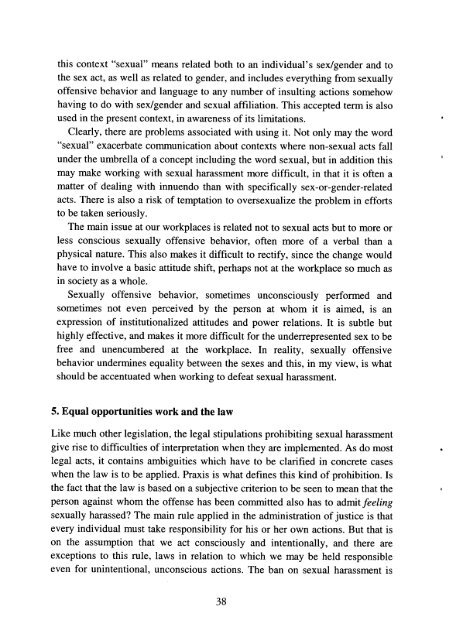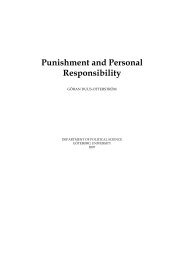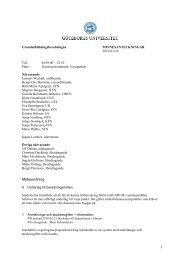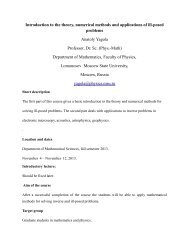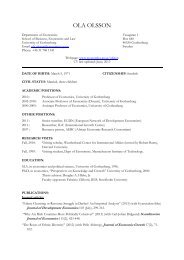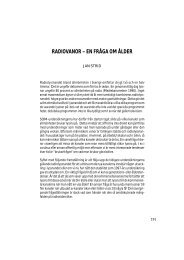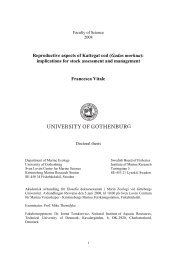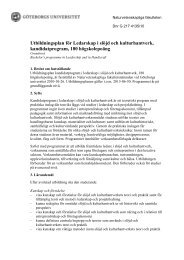Equal Opportunities Work - Theories about Practice
Equal Opportunities Work - Theories about Practice
Equal Opportunities Work - Theories about Practice
You also want an ePaper? Increase the reach of your titles
YUMPU automatically turns print PDFs into web optimized ePapers that Google loves.
this context "sexual" means related both to an individual's sex/gender and to<br />
the sex act, as well as related to gender, and includes everything from sexually<br />
offensive behavior and language to any number of insulting actions somehow<br />
having to do with sex/gender and sexual affitiation. This accepted term is also<br />
used in the present context, in awareness of its limitations.<br />
Clearly, there are problems associated with using it. Not only may the word<br />
"sexual" exacerbate communication <strong>about</strong> contexts where non-sexual acts fall<br />
under the umbrella of a concept including the word sexual, but in addition this<br />
may make working with sexual harassment more difficult, in that it is often a<br />
matter of dealing with innuendo than with specifically sex-or-gender-related<br />
acts. There is also a risk of temptation to oversexualize the problem in efforts<br />
to be taken seriously.<br />
The main issue at our workplaces is related not to sexual acts but to more or<br />
less conscious sexually offensive behavior, often more of a verbal than a<br />
physical nature. This also makes it difficult to rectify, since the change would<br />
have to involve a basic attitude shift, perhaps not at the workplace so much as<br />
in society as a whole.<br />
Sexually offensive behavior, sometimes unconsciously performed and<br />
sometimes not even perceived by the person at whom it is aimed, is an<br />
expression of institutionalized attitudes and power relations. It is subtle but<br />
highly effective, and makes it more difficult for the underrepresented sex to be<br />
free and unencumbered at the workplace. In reality, sexually offensive<br />
behavior undermines equality between the sexes and this, in my view, is what<br />
should be accentuated when working to defeat sexual harassment.<br />
5. <strong>Equal</strong> opportunities work and the law<br />
Like much other legislation, the legal stipulations prohibiting sexual harassment<br />
give rise to difficulties of interpretation when they are implemented. As do most<br />
legal acts, it contains ambiguities which have to be clarified in concrete cases<br />
when the law is to be applied. Praxis is what defines this kind of prohibition. Is<br />
the fact that the law is based on a subjective criterion to be seen to mean that the<br />
person against whom the offense has been committed also has to admit feeling<br />
sexually harassed? The main rule applied in the administration of justice is that<br />
every individual must take responsibility for his or her own actions. But that is<br />
on the assumption that we act consciously and intentionally, and there are<br />
exceptions to this rule, laws in relation to which we nray be held responsible<br />
even for unintentional, unconscious actions. The ban on sexual harassment is<br />
38


